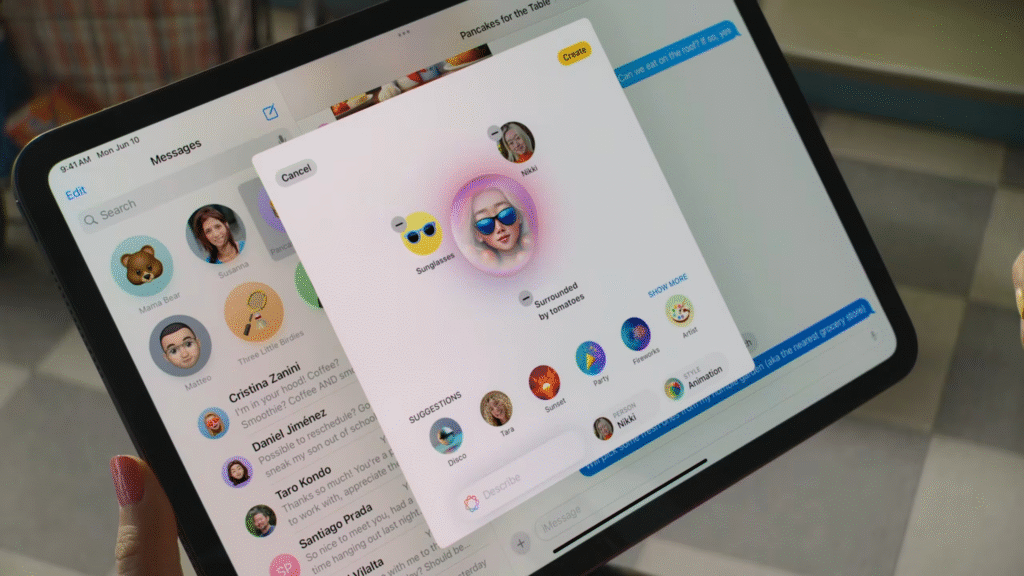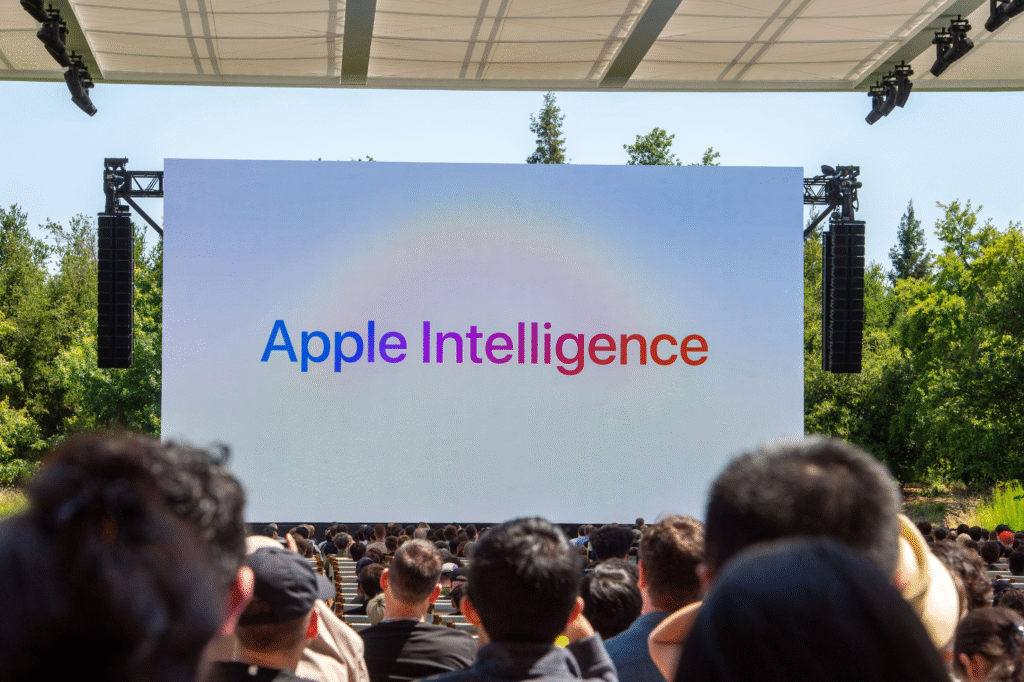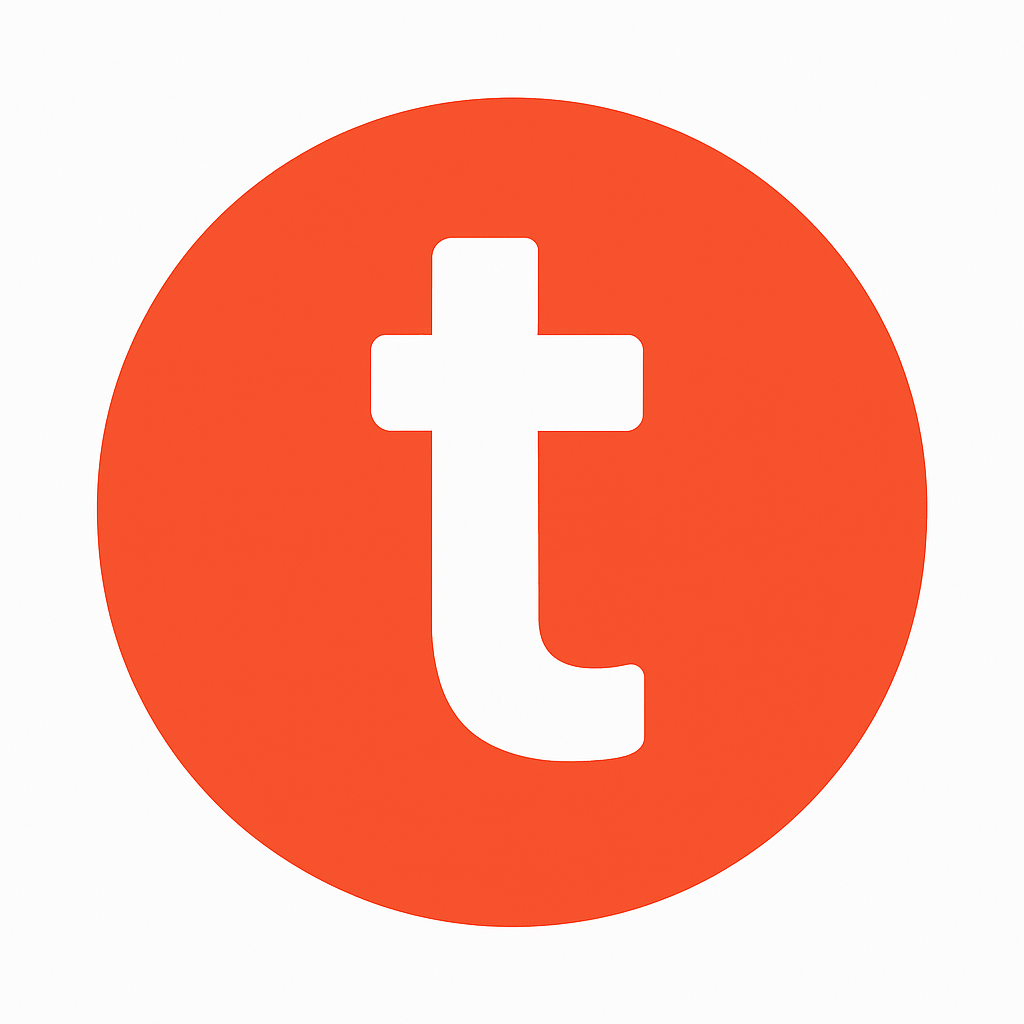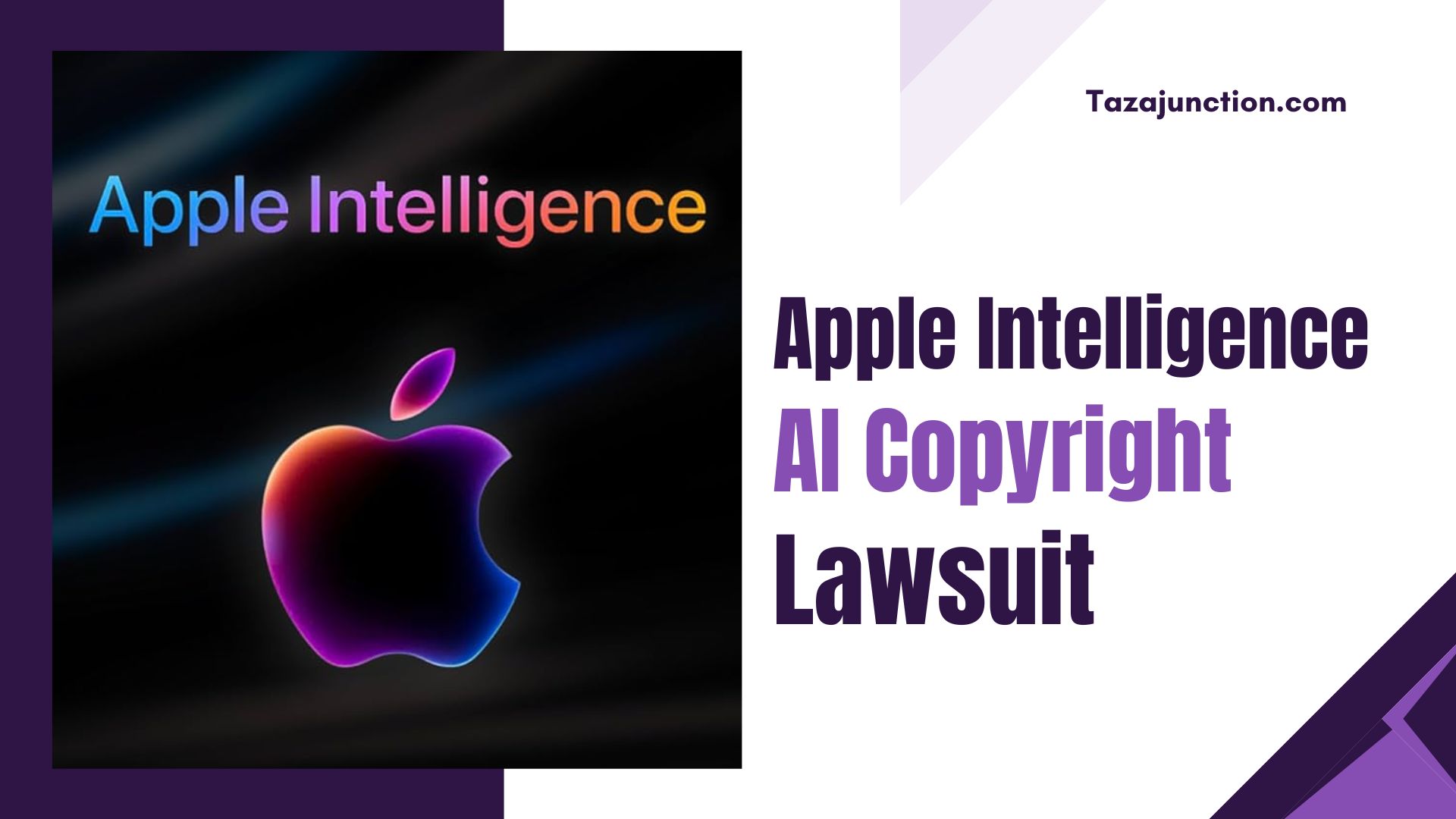The world of artificial intelligence is witnessing rapid advancements, but along with innovation comes legal and ethical challenges.
The latest storm involves Apple faces copyright lawsuit over training Apple Intelligence AI on pirated books, raising serious questions about how big tech companies are sourcing data for training their AI models.
This controversy has sent ripples across the tech industry, with experts, authors, and legal analysts debating the consequences.
In this TazaJunction.com article, we dive deep into what has been reported so far, what it means for Apple, the larger AI industry, and how this lawsuit could potentially reshape the regulatory framework around artificial intelligence.
Table of Contents
The Lawsuit Explained
The claim that Apple faces copyright lawsuit over training Apple Intelligence AI on pirated books comes at a time when AI models are under increasing scrutiny for how they use training data.
According to reports, a group of authors and publishers allege that Apple’s AI, branded as Apple Intelligence, was trained using copyrighted materials without proper licensing.
The focus of the complaint centers on books, particularly digital copies, that were allegedly obtained from pirated sources. These materials, plaintiffs argue, were incorporated into Apple’s AI systems to improve its language processing capabilities.
If true, this would mean Apple indirectly benefited from illegal content, potentially infringing intellectual property rights.
Why Pirated Books?

One of the biggest questions surrounding the lawsuit is why pirated books were allegedly involved in the first place. Training an AI system like Apple Intelligence requires massive amounts of text-based data.
While there are legitimate sources of open data, they are often insufficient for creating an advanced model that competes with rivals like OpenAI’s GPT or Google’s Gemini.
The accusation that Apple faces copyright lawsuit over training Apple Intelligence AI on pirated books highlights a growing problem: companies may be tempted to cut corners by using unauthorized sources to gain a competitive advantage.
Pirated books provide vast libraries of human knowledge and writing styles, but their use violates copyright laws and undermines the rights of authors.
Apple’s Response So Far
At the time of writing, Apple has not issued a comprehensive public response. However, insiders suggest the company may argue that its AI training relied on licensed datasets or publicly available information. Whether this defense holds up in court remains to be seen.
When Apple faces copyright lawsuit over training Apple Intelligence AI on pirated books, it also faces reputational risks.
Apple has long prided itself on privacy, ethics, and respect for user data. Any proven involvement in piracy-related practices could tarnish that image and affect consumer trust.
Broader Industry Implications
Apple is not the first company to face such allegations. Earlier this year, lawsuits targeted other AI giants for allegedly training on copyrighted works without consent.
The fact that Apple faces copyright lawsuit over training Apple Intelligence AI on pirated books underscores that the problem is industry-wide.
Authors and creators argue that their work should not be exploited without fair compensation. On the other hand, tech companies claim that restricting training data would slow down AI innovation.
This lawsuit could therefore set a precedent, determining how courts balance the need for innovation against intellectual property protections.
The Role of Regulation
Governments across the globe are watching closely. If Apple faces copyright lawsuit over training Apple Intelligence AI on pirated books, regulators may use the case as a catalyst to introduce stricter AI laws. Potential outcomes could include:
- Mandatory licensing frameworks for AI training datasets.
- Greater transparency about what data companies use for training.
- Penalties for using pirated or unauthorized content.
- New revenue-sharing models where creators benefit from AI training on their works.
This could transform the AI industry, forcing companies to invest more heavily in legal and ethical data sourcing.
What Authors and Publishers Are Saying?

The creative community has reacted strongly to the allegations. Many authors feel betrayed that their work, often representing years of effort, may have been used without consent.
Publishers are equally concerned, as piracy not only cuts into sales but now appears to be fueling billion-dollar AI projects.
By claiming that Apple faces copyright lawsuit over training Apple Intelligence AI on pirated books, the plaintiffs are essentially demanding justice and compensation.
Some have even argued for the establishment of collective licensing schemes where AI companies would pay royalties for access to copyrighted material.
Consumer Reactions
For consumers, the news is both surprising and concerning. Apple has built its brand around ethical practices and privacy protection, so the idea that Apple faces copyright lawsuit over training Apple Intelligence AI on pirated books feels contradictory.
Some users fear that if such allegations are true, it calls into question Apple’s commitment to transparency. Others worry that lawsuits and potential penalties might slow down the development of Apple Intelligence, delaying features or limiting future capabilities.
Potential Legal Outcomes
Legal experts believe there are a few possible directions this case could take:
- Out-of-court settlement – Apple may choose to settle, paying compensation without admitting wrongdoing.
- Court ruling in favor of authors – This could set a powerful precedent, forcing AI companies to secure licenses for training data.
- Court ruling in favor of Apple – If Apple proves it did not rely on pirated data, it may avoid penalties, but scrutiny would remain.
- Legislative reform – Regardless of the outcome, governments may intervene to create stricter regulations.
The fact that Apple faces copyright lawsuit over training Apple Intelligence AI on pirated books suggests this won’t be a simple battle; it has the potential to drag on for years and reshape the industry.
Impact on Apple Intelligence
Apple Intelligence is positioned as Apple’s answer to OpenAI, Google, and Microsoft’s growing AI dominance. If this lawsuit disrupts its development, Apple risks falling behind in the AI arms race.
The allegations that Apple faces copyright lawsuit over training Apple Intelligence AI on pirated books could force Apple to pause, reevaluate its data pipelines, and adopt more transparent practices.
While this might slow down progress in the short term, it could ultimately lead to stronger, more ethical AI solutions in the long run.
Looking Ahead
This lawsuit is not just about Apple. It’s about how the entire AI industry handles intellectual property in the age of machine learning.
The controversy that Apple faces copyright lawsuit over training Apple Intelligence AI on pirated books could reshape the future of AI, copyright law, and the relationship between technology and creativity.
As the case develops, one thing is clear: the balance between innovation and creator rights is becoming one of the most pressing issues of our time. If Apple is found guilty, it may have to pay damages and alter its practices. If not, the debate over ethical AI training will continue, with other companies facing similar scrutiny.
Conclusion
The revelation that Apple faces copyright lawsuit over training Apple Intelligence AI on pirated books marks a turning point in the global AI conversation.
It highlights the urgency of establishing clear rules for how AI systems are trained and raises fundamental questions about fairness, ownership, and accountability in the digital age.
For Apple, the stakes are incredibly high. For the broader industry, this lawsuit could define the standards for the next decade of AI development. Consumers, authors, and innovators alike will be watching closely to see what happens next.

